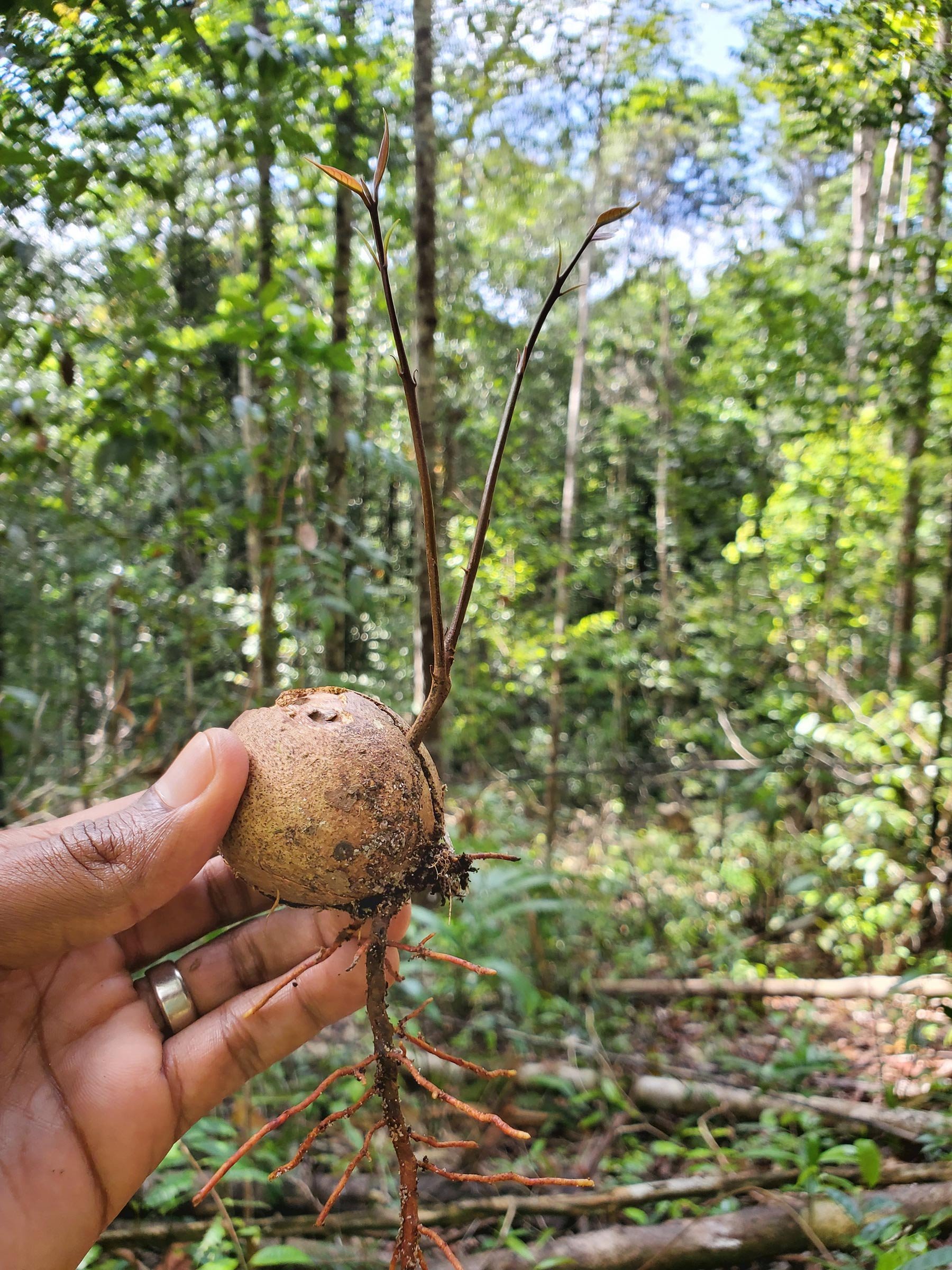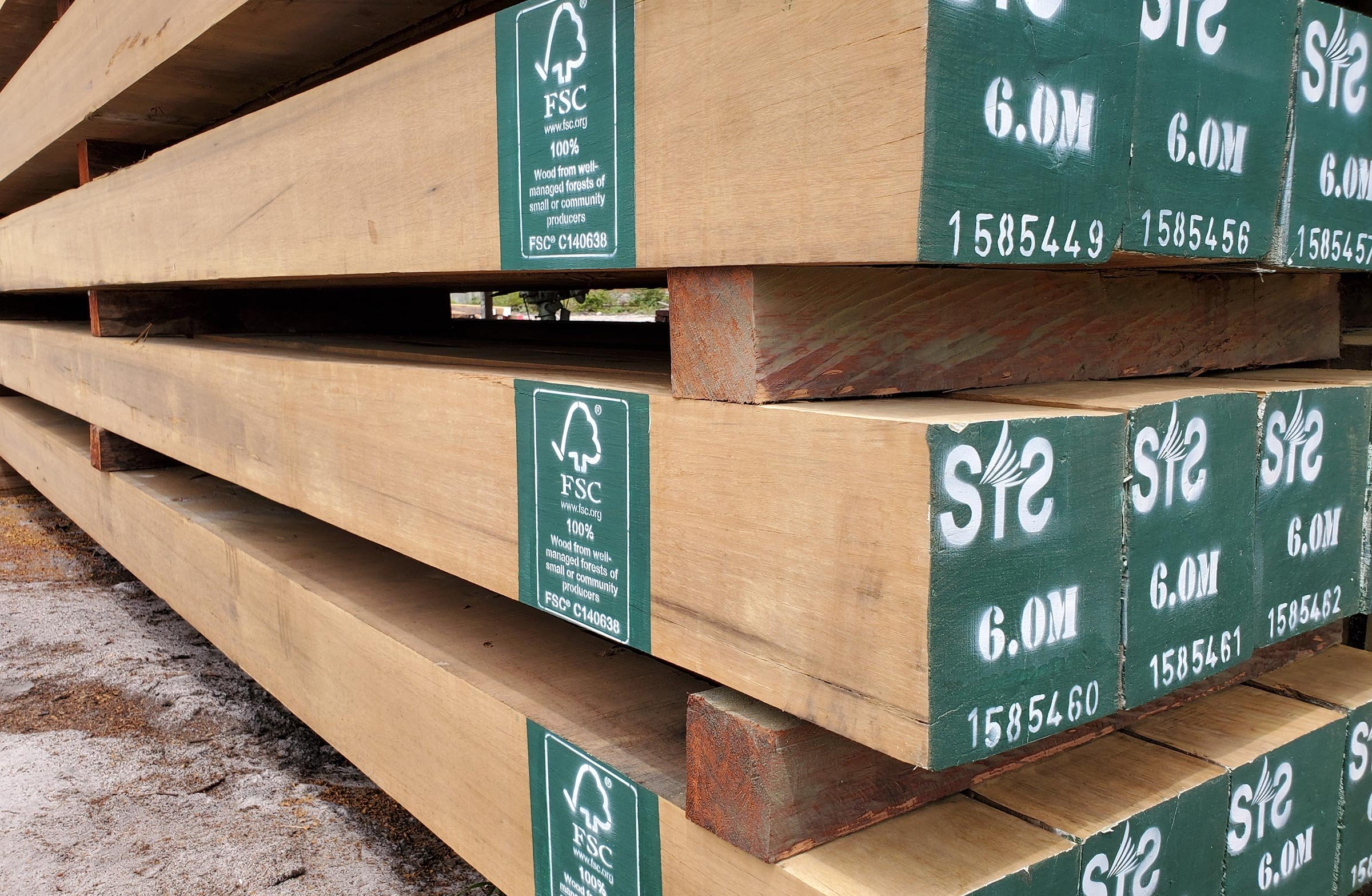
Sustainable Forestry
Sustainably Certified and Legally Verified
Guyana is home to one of the largest intact tropical forests in the world. It is a source of national pride for us, it covers more than 87% of the country and we intend to keep it that way.
Satellite analysis in 2020 showed a deforestation rate of 0.36%, one of the lowest rates in the world. Today with significant financial value attributed to standing forests in the form of Carbon Credits, the Guyanese government is determined to protect and preserve our forest, including a programme of afforestation in areas cleared in the past for mining and agriculture. From the top down the Guyanese recognise the value of an intact, healthy forest and we can boast some of the best regulatory and monitoring systems in the world to preserve it.
Reduced Impact Logging
In Guyana, harvest operations follow a system called Reduced Impact Logging (RIL) - a set of techniques and practices that minimize the environmental impact of forestry operations while ensuring the sustainable management of forests through natural regeneration.
Research on the ecological impact of RIL operations on the forest in Guyana has shown that when compared against primary forest, there is almost no detectable impact on the biodiversity.
Natural Regeneration
The forest floor is a low light environment populated with saplings waiting for an opportunity to grow. As mature trees age they start to rot from the inside and eventually fall, opening a space in the canopy. The pool of light that now reaches the forest floor triggers the growth of the saplings that will fill the void left by the fallen tree. In RIL concessions we select and remove a mature tree before it begins to rot and the small gap created in the canopy triggers sapling growth and natural regeneration.
Comparative studies between primary forest and logged forest in Guyana do not detect any impact on the biodiversity.
RIL emphasizes the careful selection of individual trees for harvesting and the protection of soil, water, and wildlife habitats during logging operations. The goal is to reduce damage to forest ecosystems and to maintain the long-term productivity and ecological integrity of the forest.
Regulation and Monitoring
In Guyana we are permitted to harvest up to 20m3 per hectare (equivalent to two or three trees in an area the size of a football field). After these trees have been harvested, the area is then left untouched for decades.
STS and the Guyanese Forestry Commission (GFC) conduct rigorous monitoring and evaluation of our concessions to ensure that all environmental and social standards are met.
Our aim is to balance economic, social, and environmental considerations, with the goal of ensuring that forests can continue to provide valuable resources and ecological services for generations to come.
Log Tags
In Guyana we use log tags as a traceability system that tracks the origin, movement, and sale of timber products from the forest to the final customer.
When a tree is harvested, it is assigned a unique identification number that is recorded on a log tag. One part of the tag is attached to the stump and the other remains with with the log throughout the entire supply chain.
This system ensures that all timber harvested in Guyana is legal and traceable and is a guarantee that it has been sourced from sustainable forestry operations.
As well as being a renewable resource, sustainable tropical timber has a low carbon footprint. It locks in carbon (captured during the tree’s growth) and the post harvest regeneration by growing saplings, absorbs and stores even more carbon. Timber also has a much lower Embodied Energy (energy required to produce it) compared to building materials such as concrete, steel and plastics.
Sustainable timber is considered one of the most environmentally friendly building resources available.
Tropical hardwoods, such as greenheart and purpleheart, are particularly dense and durable, meaning they store more carbon per unit of volume compared to other types of wood. As a result, sustainably harvested tropical hardwood is a valuable resource for carbon sequestration.
Timber is also a natural insulator that can help to reduce energy consumption in buildings and is biodegradable and can easily be recycled or reused at the end of its life. Find out more here.
A Positive Material
STS is committed to work practices that support a wide range of social, economic and ecological development issues central to the United Nations’ Sustainable Development Goals (SDGs).
The SDGs prioritise working towards protecting biodiversity and guaranteeing the livelihoods of the local population. Find out more here.






